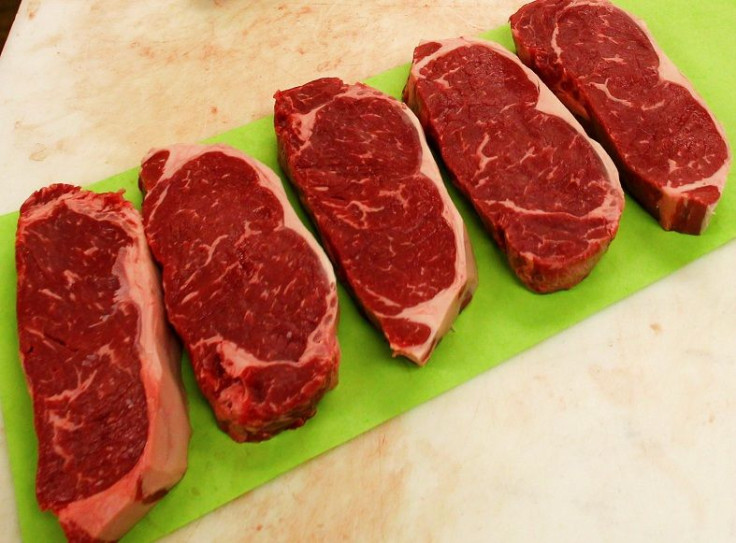Eating Meat May Boost Risk of Obesity and Contamination

The 1980s ushered in the era of factory farms, many of which used antibiotics in order to fatten up livestock. Coincidentally, at around the same time, the level of obesity in the United States began to rise. According to the Centers for Disease Control and Prevention, in 1985, all of the states with recorded data had populations in which less than 19 percent of the population was obese. Today, Colorado, the least obese state, counts 20.7 percent of its population as obese; in Mississippi, over a third of adults (34.7 percent) are obese.
There may be a link between antibiotic use in livestock and obesity in the people who eat them, Mother Jones reports. Recent studies have found that antibiotic use causes changes in the microbiome, the microbe community that lives in digestive tracts of animals. Ilseung Cho, a NYU researcher and co-author of a study published in Nature, said that animals exposed to antibiotics extract more energy from the food that they ingest. That energy that they extract is converted into fat.
That makes sense for four-legged creatures, but what about humans? Another study published in the International Journal of Obesity found that of the 11,000 children who provided data, those exposed to antibiotics during the first six years of their life had a greater risk of becoming obese by the age of three. That risk faded away by the age of seven, however.
The question remains, though, if humans are being exposed to antibiotics through the food that we eat. The Food and Drug Administration forbids meat above a certain antibiotic contamination level from being served to the public. While studies have not been able to conclusively determine the role that antibiotics in food may play in the obesity epidemic, one study published in mBio found that antibiotics certainly had an effect on contaminants. Normally, when sausage is made, lactic acid from the body's bacteria kills microbes like E. coli. When the sausage was treated with antibiotics at about the level that the FDA says is all right, antibiotics impeded starter bacteria, but let E, coli flourish.
That finding may explain the rise in drug-resistant bacteria and contaminated products. In 2012 alone, Medical Daily reported on the recalls of butter chicken, barbecue chicken salad, meatballs, chicken and beef patties, and chicken and beef loaf.
Published by Medicaldaily.com



























